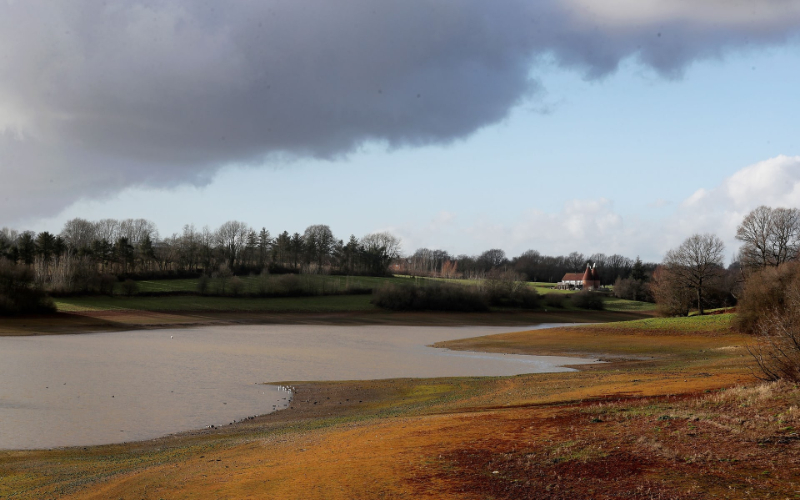11 Dec 2024

Tired Earth
By The Editorial Board

A year of dry weather, only slightly alleviated by recent storms, has left much of south-east England facing drought this summer.
Groundwater and some reservoir levels are well below normal and only above-average rainfall in the next three months will refill them, officials warned on Friday. One water company, Southern Water, has applied for a drought permit to allow them to take more water than normally allowed from the River Medway in Kent, to try to avoid water restrictions for households in the summer.
Last winter was unusually dry, with 25% less rain than normal, as was last spring. Summer rains are nearly all taken up by trees and plants and autumn was particularly dry in the south-east, with 63% less rain than usual in October and 34% less in November.
This has left almost half of groundwater monitoring sites across the south and east of England “exceptionally” or “notably” low. The water companies facing the greatest risk of drought are all in the south-east: Southern Water, Affinity Water and Sutton and East Surrey Water.
“Despite the recent wet weather at the end of December, we had a dry end to the autumn with rainfall much lower than average in the south-east of England,” said Stuart Sampson, Environment Agency (EA) water manager. “Above-average rainfall is now needed in parts of this region over the winter months to replenish groundwater supplies for 2018.”
“The EA is actively working with water companies, business and farmers to balance the needs of water users, and our teams are ready to respond to potential impacts of dry weather on people, the environment and wildlife,” he said.
Southern Water has applied to take more water than normally allowed from the Medway, which has had below average flows for most of the last year. This is to refill the Bewl reservoir, which is currently only 44% full, far below the 75% that is usual at this time of year.
Alison Hoyle at Southern Water said: “The reservoir is a key resource. As well as supplying our customers in the Medway towns, Thanet and Hastings, it is also used by South East Water. It is vital that we can put more water into it and we would like to see it reach levels of 75% before the end of March.”
The EA could grant this permit within two weeks if it does not endanger wildlife or navigation on the river, and no objections are received from the public. The EA and water companies hope such action will cut the risk of restrictions such as bans on hosepipes and car washing. Such actions can affect businesses as well as households as, for example, garden centres lose business during hosepipe bans, which were last seen in 2012.
“Water companies will be advising their customers to use water wisely and considering action to preserve and enhance water supplies,” said Sampson.
Last May, after an exceptionally dry spring, the Guardian revealed that the vast amount of water that leaks from company pipes every day has not fallen for at least four years. Furthermore, many companies in the parched south and east of England have been set leak reduction targets for 2020 of zero or even targets that could allow leakage to increase.
Source : www.theguardian.com
Comment